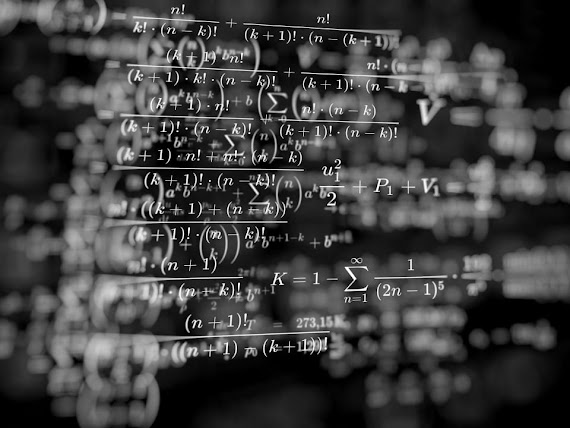 |
| Physicist Michio Kaku Explains God Equation And String Theory |
This theory, also known as the God Equation, would unify all the basic concepts of physics into one. According to Kaku, the best, most "mathematically consistent" candidate so far is string theory, but there are objections.
Albert Einstein spent 30 years of his life trying to figure out what God's thought is. Einstein desired a formula that combined gravity, electromagnetic force, and the two nuclear forces into a single equation. He intended to combine all four forces into a single hypothesis. The God Equation is the ultimate theory.
One of the greatest mathematicians in history, Leonard Euler, discovered a single equation that encapsulated the fundamental constants of mathematics. The sum of one plus e to the I pi is zero. This is known as the God Equation of Mathematics. Of course, the God Equation has no practical applicability, but consider the possibility of a God Equation for physics. Physics is quite beneficial. Newton laid the foundation for the Industrial Revolution by figuring out the physics of moving things and gravity.
The electromagnetic force was created when Maxwell and Faraday combined electricity and magnetism. Dynamos, generators, and light bulbs were all part of the electric revolution. Now we have e equals mc-squared, which has aided in the development of nuclear weapons. Each time power was revealed, it altered the course of human history. Now we wish to combine everything into the God Equation, completing Einstein's original dream.
"It's no exaggeration to say that the greatest minds of the entire human race have made proposals for this grand final theory of everything," says theoretical physicist Michio Kaku.
The God Equation, like the Mathematical God Equation, should integrate the fundamental notions of physics into a single equation. So, what are these fundamental ideas? Quantum theory and relativity The issue is that quantum theory and general activities do not mix well. Einstein's general activity is based on smooth surfaces. The foundation of quantum theory is the division of matter into particles. Einstein's philosophy of smooth curves expressing space-time is the polar opposite of this. That is why it is so challenging.
It's no exaggeration to state that this big final theory of everything has been proposed by the best minds of the entire human species. Each one was found to be abnormal or deviant in some way. So yet, only one theory has stood the test of time: string theory, which is what I study for a living. What is string theory, exactly? An electron seems to be a dot from afar. Another dot is the neutrino. Another dot is the quark. We've got a lot of dot particles. How many dot particles are there? There were hundreds of them. However, string theory claims that if you look into the heart of an electron, you'll see a rubber band.
A teeny-tiny vibrating string that looks a lot like a guitar string. We have subatomic particles because there are an endless amount of vibrations. Each of the subatomic particles corresponds to a separate set of rubber band vibrations. String theory allows you to rotate particles into each other, converting electrons to neutrinos and neutrinos to quarks while maintaining the same theory. That is the string's symmetry, and it is what makes it so powerful. A basic concept that encompasses the entirety of the universe.
Now, in my opinion, string theory is most likely the only mathematically consistent theory. Mathematically, all of the hypotheses are incompatible. What exactly does that imply? It indicates that you can establish that two plus two equals five if you go far enough. As a result, the theory is incorrect. So far, two plus two has always equal four in string theory. It's possible that it's the only theory in which two plus two equals four. String theory, by the way, has a lot of critics. The most serious objection is that you can't test it. But we're getting closer to being able to put it to the test.
"The biggest objection is you can't test it," Kaku explains, "but we're getting closer and closer."
This entire philosophy of everything is mind-blowing. It opens the possibility of time machines, wormholes, the cosmos before the Big Bang, parallel worlds, the multiverse, and other ethereal phenomena. Is it possible to travel back in time and meet your parents before they gave birth to you? Is it possible to go through a wormhole faster than the speed of light? We have no idea. That is why string theory is required.
About MICHIO KAKU:
Dr. Michio Kaku is the co-founder of string field theory and is one of the most widely recognized scientists in the world today. He has written 4 New York Times Best Sellers, is the science correspondent for CBS This Morning, and has hosted numerous science specials for BBC-TV, the Discovery/Science Channel. His radio show broadcasts to 100 radio stations every week. Dr. Kaku holds the Henry Semat Chair and Professorship in theoretical physics at the City College of New York (CUNY), where he has taught for over 25 years. He has also been a visiting professor at the Institute for Advanced Study as well as New York University (NYU).